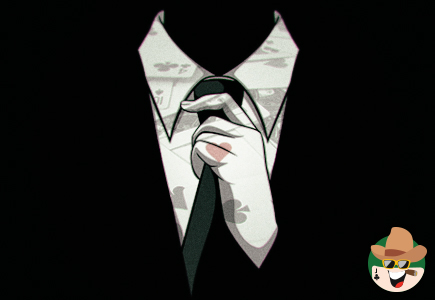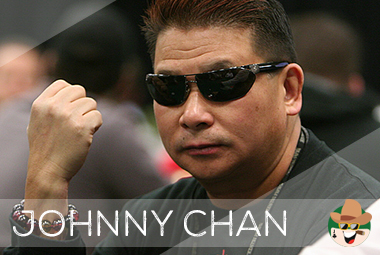

I know a lot of people who don't play poker in casinos because they are intimidated by the other players. They are afraid of playing against professionals.
Their attitude often makes me smile. I understand why they feel the way they do. Who wants to sit down at the same table as a Phil Ivey, Johnny Chan, Daniel Negraneau or Phil Hellmuth?
Well, I have news for you. In the long run, you could play a tournament just as well as any professional who ever sat at a poker table.
All you need to do in order to accept my theory as fact is to look at the story of Chris Moneymaker.
Moneymaker was a rank amateur when he made his amazing breakthrough and won $2.5 million at the World Series of Poker after winning a $10,000 buy-in on-line more than 10 years ago.
Suddenly, overnight, he found himself in Las Vegas at the WSOP playing against nearly 900 players, many of them professionals. He stayed to his principles, refused to let them intimidate him, and became an aggressive bully who made them play his game. And of course, the rest is history.
To examine this more closely, exactly what is a professional poker player?
I submit to you that a professional player is just somebody like you who started out playing limit poker, somebody who enjoys the game, and who has paid his dues. You pay your dues by both winning and losing.
Some players, of course, get luckier than others and learn the game a lot faster. Some learn to play well through necessity. I have known many players who were near busted when they made incredible breakthroughs and won either large cash games or tournaments. Everybody's case is different.
Early in my poker playing days I found myself sitting at tables with name poker players. They don't make players much better than Chip Reese, who was one of Doyle Brunson's close friends. I entered a $250 buy-in tournament once at the Riviera Casino in Las Vegas and suddenly found myself sitting across from Reese. The game was Texas Hold'em and I had lost most of my chips.

The dealer dealt me a pair of jacks. I raised the pot and four players, including Chip, called my raise. The flop came j-j-a, giving me four of a kind. I only had a few chips left and pushed all in. Reese was one of the two callers. The dealer turned over a second ace on fourth street.
From the way Reese played his cards, I knew I was beat. When he turned over his cards and showed pocket aces, I wasn't even surprised.
Those kinds of hands will occur in Texas Hold'em, but they can come to an amateur as well as a pro. Reese ended up making the final table in that tournament and won a good amount of money. But it could have been me just as easily.
Some strategy books on Hold'em give good advice on how to handle a pro. They recommend an amateur over-bet the pot in order to make it expensive for a professional to call your over-bet. That works sometimes and sometimes it doesn't. But it is one of the options you have in a tournament or cash game.
Poker is poker. There are 52 cards in a deck and the odds stay true depending on which cards are out and which ones you need to make a hand.
If you play in a lucrative poker tournament or cash game, sooner or later you will run into a name player. Get over your fears of meeting a celebrity that you normally watch on television. He or she is simply a poker player. If you get the right cards and play them well, you win. If not, you lose. It's as easy as that.
Chris Moneymaker forced Sammy Farha to fold the best pair to win $2.5 million when he bet a king high hand. The real question you should ask yourself is do you have the courage to do the same? If your answer is yes, congratulations. You have the tools to win, regardless of who you are playing against.
Author: Geno Lawrenzi Jr.
(Geno Lawrenzi Jr. is an international journalist, magazine author and ghostwriter and poker player who lives in Phoenx, AZ. He has published 2,000 articles in 50 magazines and 125 newspapers. If you want to share a gambling story or book idea with him, send an email to glawrenzi@gmail.com ).





